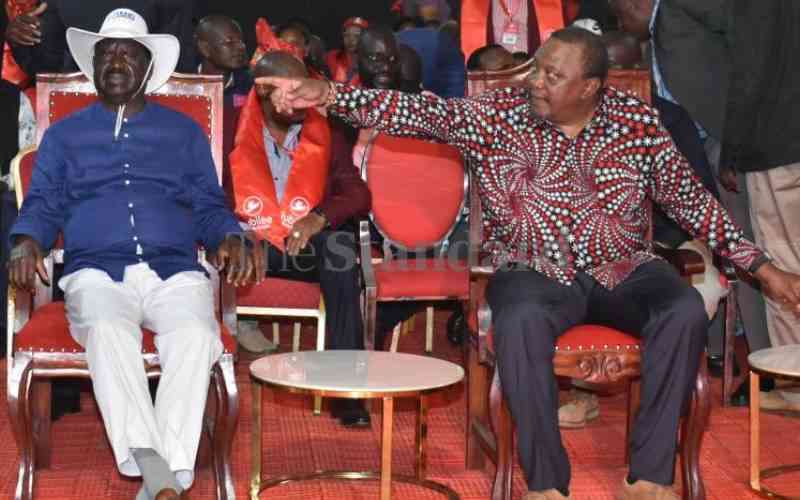×
The Standard e-Paper
Stay Informed, Even Offline

Fears of a split between former President Uhuru Kenyatta and Raila Odinga have emerged after the two political allies appeared to pull in different directions over the bipartisan talks report.
In the past few weeks, the former Head of State has launched an all-out charm offensive to keep the ODM leader close after the release of the National Dialogue Committee (Nadco) report appeared to create a division within the Azimio coalition's rank and file.